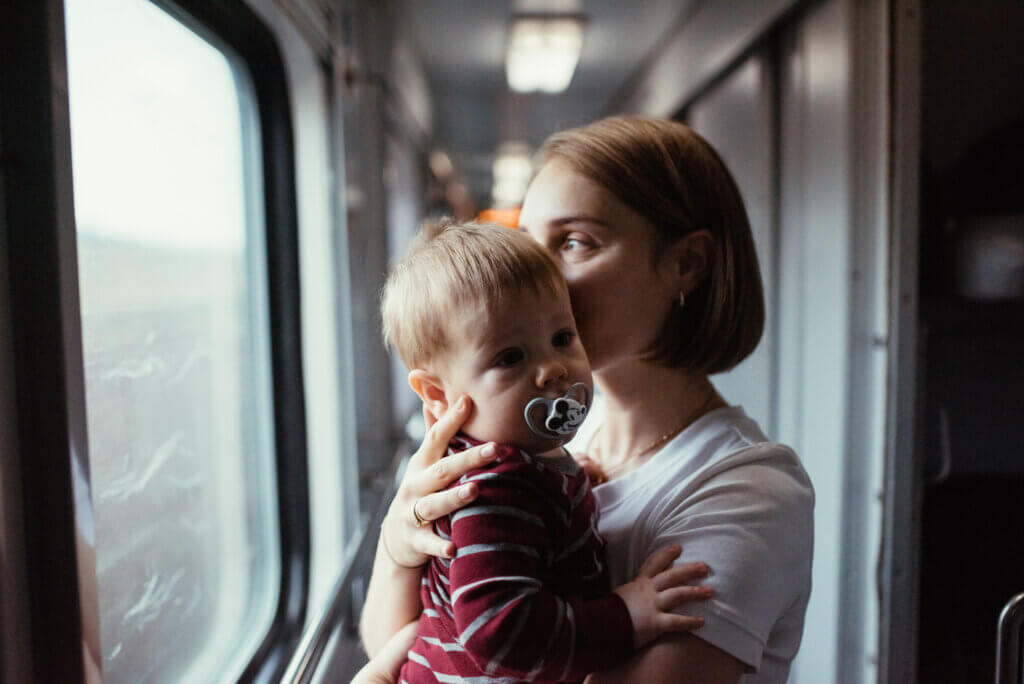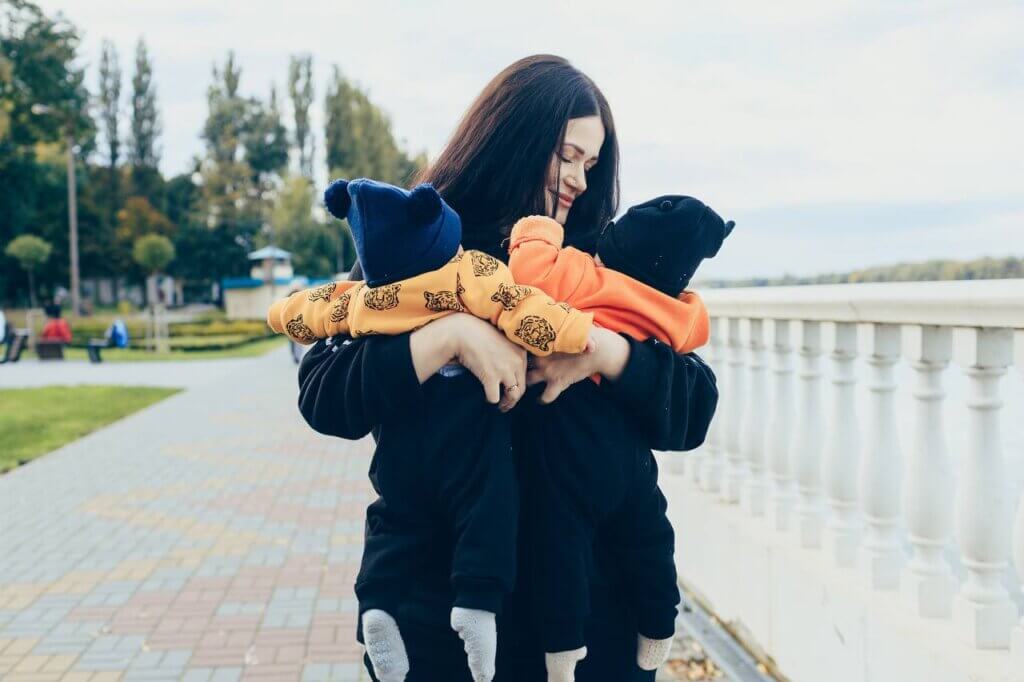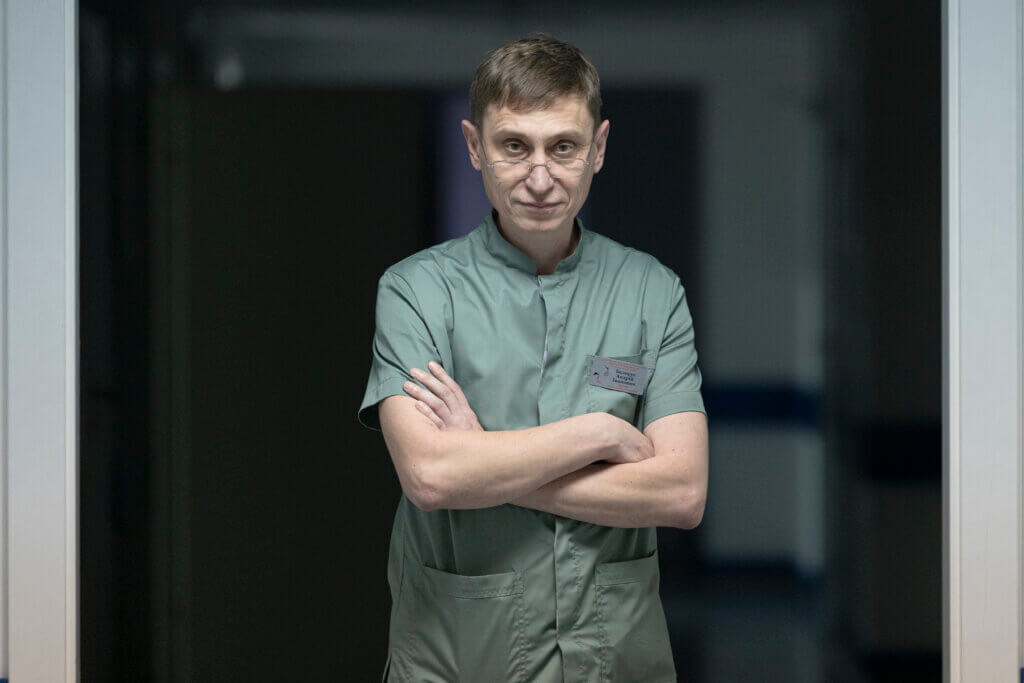One year of war in Ukraine

One year ago, women and girls across Ukraine woke from their sleep to find their country blanketed with bombs and their lives changed forever. Tensions had been building in the region for years, but they still held out hope that their lives might remain mostly normal. They might continue to safely go to work and school, to raise their children, and to spend time with their families, friends, and, famously, their pets.
No one expected that we would be here, watching world leaders navigate an energy crisis, mounting food insecurity, and the threat of ever more violence — or that we would be watching Ukrainians continue to stand strong in the face of incredible uncertainty.
After one year of war, 17.7 million people are in need of aid in Ukraine and 8 million people have left the country. 90 percent of those who have left and 60 percent of those who are displaced inside the country are women and children. These survivors need health care. Women and girls are continuing to get their periods, become pregnant, and give birth. Children need their vaccinations and treatment for childhood diseases. And the stress of war has left many in need of mental health counseling.
Thanks to the contributions of supporters like you, we have been on the ground in Ukraine for 25 years, delivering lifesaving sexual and reproductive health care. In the past year we have massively scaled up our services to meet the escalating needs of war survivors in Ukraine Here are just a few examples of your impact:

Anastasiia
Just two months before the war, Anastasiia found out she was going to be a mom – to twins! She and her partner planned a big wedding for the beginning of February 2022. They moved into a house by the sea and were running the family business. On February 24, she woke to the sound of explosions. “I immediately realized what was happening,” she recalls.
She stashed her car with essentials and cash, but decided to stay in her home as long as she could. A few months later, part way into her second trimester, Anastasiia could no longer access the medical care she needed. “I could not stay, but there were 18 checkpoints to go through to get out of Berdyansk. I collected my thoughts and decided to drive out of the city by car. They searched me at all the checkpoints, but they did not notice that I was pregnant—probably because I was so thin.”
She drove 17 hours alone, crossing checkpoints and mine fields, to arrive at her husband’s family’s home. It was there that she went to a UNFPA-supported hospital. “Hospital staff immediately registered me, connected me with a doctor, and did all the tests, ultrasounds and screenings that I needed. The babies were fine. After that first visit, I knew I would give birth there,” she explained.
Throughout the war, there have been 780 attacks on health facilities in Ukraine this past year, leaving many unable to continue providing care. For Anastasiia, this meant her high-risk pregnancy was even riskier. But she did give birth safely and now, she’s a mom to two healthy baby boys. This was all because she could access reproductive health care.

Oksana
“On February 24, we woke up because the whole house was shaking. At that time, we lived next to Chornobayivka, and the first rockets had just arrived there. I woke up in horror… My partner and I immediately guessed that it was most likely the war had started, and we had to do something. My partner and I took our children and pets and evacuated. We drove for a very long time. The journey, which usually takes 6 or 7 hours, this time took 14. This was our first day of war,” recalled Oksana.
And, tragically, her life only got worse. Her partner began to abuse her. It began as one slap, but the violence quickly devolved into bruises, screaming, and constant fear. She left, but it wasn’t the end – someone had reached out to her counselor with all her name and address and began asking questions about where she was staying. Oksana explained, “I was very scared when I imagined what could happen if he came here. He might stand by the door again and then all the screams, rows, and threats would resume. I was very scared and didn’t know what to do.”
Violence towards women and girls tends to increase in times of crisis, but emergencies like these also make it harder for women and girls to access counseling, shelters, and safe spaces. Luckily, Oksana found her way to a UNFPA safe space. “The experts of the hub became real support for me. When I was afraid of persecution, the counselor, Tetyana, was near me. She supported me, calmed me down, helped me get a hold of myself. She advised me to go to a shelter, because he knew where I lived, and he couldn’t find me there.” Today, Oksana and her children are safe from her abuser.

Viktoria
Viktoria woke up early on the morning the war started. She was about to get ready for school when she checked her phone and realized her life had completely changed overnight. “I lay in bed and couldn’t understand what was going on. Our school lessons were suspended and I sat at home flipping through the news in fear.”
Just the day before, she had been with her friends, talking about which universities they wanted to apply to. Now, she has no idea when she’ll be able to return to school. But Viktoria knew she had to do something
“I wake up, have breakfast and go volunteering. I’ve come across different people, different stories, creating a new unique history of our country. I never thought I would be involved in this kind of activity – helping hundreds of people a day looking for transport to the border or distracting them from horrible thoughts.” As a youth volunteer with UNFPA, Viktoria connects teens like her with mental health services and sexuality education classes.
“I have a completely different vision of the world and people in general. I’ve grown a few years in 26 days. I became more stress-resistant, more resilient, and got better at teamwork,” she explained. She dreams a better future for herself and her country and she feels inspired to continue her work to make that happen.

Mariya
“The past six months were like a lifetime for us,” said Elena, a 70-year-old refugee from Ukraine now living in Moldova due to the war. She visits a UNFPA safe space where she can access mental health care and build community with other refugees. “We work hard to create a positive environment at the refugee center. People have different needs, so we amplify their voices and collectively find ways to help each other.”
Building consensus and uplifting others isn’t new to Mariya. She held leadership positions and chaired trade unions throughout her career. She acts as a role model to teens and young people at the center. Her resilience and life experience inspired others to make the best of their home away from home.
“There is a high level of psychological distress among the refugees, but we are safe, surrounded by incredibly kind and compassionate people,” says Elena. “The safe space is a good place for us to find peace, connect with each other and grow our community.
Moldova is home to over 100,000 refugees. UNFPA supports them with 16 safe spaces like Mariye’s and another 4 mobile safe spaces. In addition, UNFPA has scaled up the provision of other lifesaving services, like family planning and safe delivery care.

Andriye
“Here, on the 6th floor, we see drones and rockets flying. Everyone is scared, but we have to be there, to save the lives of women and children,” said Andriye. He’s been an anesthesiologist in maternity wards in Ukraine for 30 years, this past year of war has been one of the most difficult in his career.
When the war broke out, staff equipped the center’s bomb shelter with everything necessary for childbirth and emergency care. Doctors and nurses try not to transfer patients to the bomb shelter as it can put their lives at risk, but decisions are made based on what is best for mothers. Andriye says, “On the worst days, when everyone else went down to the shelter, me, the anesthesiologist, the nurse, and the most critical patients remained on the floors here. We understood that some of them simply might not survive removal to the shelter.”
The stress of war, malnutrition, disruption of local transport and communications, destruction of medical facilities, and lack of medical care has led more women to give birth prematurely or to experience miscarriage. And, as women flee war-torn regions of Ukraine, some are coming through Andriye’s center for care. Thanks to your support, we’ve been able to deliver essential medical supplies to health centers like Andriye’s across Ukraine. “We are very grateful for this help. After all, when it comes to medical assistance during childbirth, it is a question of saving the life of a woman and her child. We cannot delay.”
Into the second year
Together, we’ve made an incredible impact for Ukrainian women and girls this past year. As the war in Ukraine stretches into its second year and beyond, we cannot forget about women and girls like Anastasiia, Oksana, Viktoria, and Mariye, or the health care staff like Andriye who make their lives safer and healthier every day. However, we’ve only received 39% of the funding we need to keep these essential services running through the end of 2023. Your gift today is a lifeline for women and girls surviving the crisis in Ukraine and will provide sexual and reproductive health care wherever it is needed most.